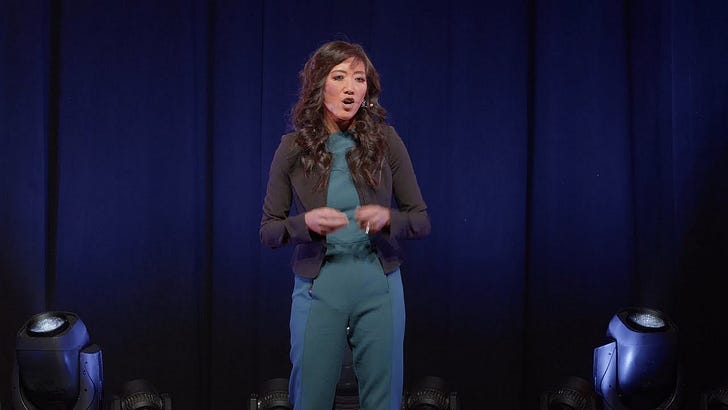Dear friends,
I am so excited my TEDxReno talk is live!
Would you please do me a favor when you have a moment and check out, like and comment?
In this talk, I discuss how negative thoughts often lead to self-sabotage, imposter syndrome, or unhealthy stress coping and explain why our brains leans towards negativity. I offer clear strategies to transform your thinking to boost productivity, joy, and resilience.
I also discuss how early attachment styles shape our core beliefs, and present ten practical methods to reparent yourself in order to foster positivity and healing.
I’m interested in your feedback so please make sure to comment on the video! And share this with anyone else you think might want to check it out and who might find this helpful.
Thanks so much for your support!
Cheers to your health,
Judy
LinkedIn Live on May 31 at 9 am PT
Please join me on LinkedIn Live on Friday, May 31 where I will share some of my favorite techniques for strengthening your attachment style and regulating your nervous system. Plus, I’ll answer your questions about wellness and mental health!
Take my Attachment Styles Quiz!
About me:
Dr. Judy Ho, Ph. D., ABPP, ABPdN is a triple board certified and licensed Clinical and Forensic Neuropsychologist, a tenured Associate Professor at Pepperdine University, television and podcast host, and author of Stop Self-Sabotage. An avid researcher and a two-time recipient of the National Institute of Mental Health Services Research Award, Dr. Judy maintains a private practice where she specializes in comprehensive neuropsychological evaluations and expert witness work. She is often called on by the media as an expert psychologist and is also a sought after public speaker for universities, businesses, and organizations.
Dr. Judy received her bachelor's degrees in Psychology and Business Administration from UC Berkeley, and her masters and doctorate from SDSU/UCSD Joint Doctoral Program in Clinical Psychology. She completed a National Institute of Mental Health sponsored fellowship at UCLA's Semel Institute.





